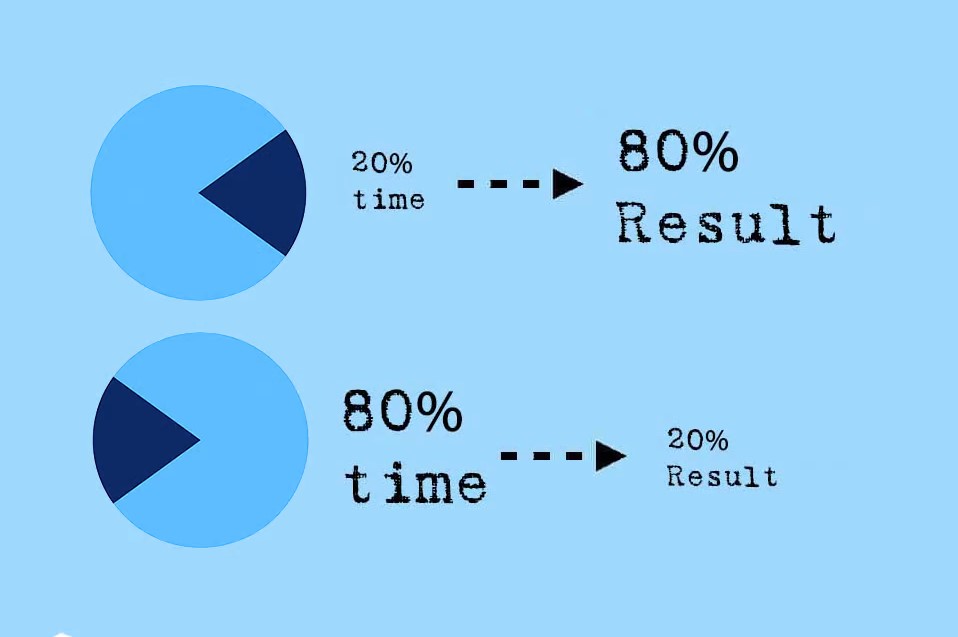Education & Career Trends: April 19, 2023
Curated by the Knowledge Team of ICS Career GPS

- Excerpts are taken from an article published on psychologytoday.com
Most of us have been told that the key to success is hard work, may it be in our education, careers, or relationships. But have you ever wondered why you sometimes get mediocre results despite putting so much of your time and effort into achieving something? Your immediate instinct might be to work even harder and dedicate more of your time and resources to your task. On the surface, this reaction makes sense; the harder you try, the more likely you will achieve your goal. But, it turns out, the key to success isn’t working harder, but working smarter.
The 80–20 rule states that the minority of causes have the most impact, whereas the majority have the least. The values of 80 percent and 20 percent aren’t exact values—it could be 70–30 or even 95–5. In other words, a few of the things we do have a huge impact while most of the things we do have very little impact. By focusing our efforts on the things that have a big impact, we can save time and achieve more.
80–20 Rule Examples
Have you ever driven by a construction site or walked into an office and observed that a few employees were absorbed in their tasks and working diligently while others were just idling around? You might have just seen the 80–20 rule at work, literally and figuratively. According to this rule, 20 percent of employees produce 80 percent of the work output, while the remaining majority produce only 20 percent (Koch, 2011).
In another example, approximately 20 percent of a company’s products might be responsible for 80 percent of its sales (Koch, 2011).
Eighty percent of the company’s sales might involve 20 percent of its customers (Koch, 2011).
In relationships, 20 percent of the people you interact with might cause 80 percent of arguments.
How to Use the 80–20 Rule
One of the most important things for using the 80–20 rule is to stop doing activities that waste your time. The 80–20 rule can help you determine the actions that waste most of your time, so you can reduce or eliminate them from your schedule and reclaim your lost hours and use them for activities that matter more to you or help you achieve your goals.
Thus, according to the 80–20 rule, one of the best ways to become more productive is to figure out and eliminate the most unproductive activities on your schedule and prioritise the most effective activities.
One method to figure out what to prioritise is by making a list of all activities you aim to tackle that day. Next, you can sort them in order of importance or value. Then you might start tackling them by spending most of your effort completing the vital few activities on top of your list. That way, even if you don’t finish everything on your list, you might still feel productive and accomplished by getting the most important tasks done well.
…
Have you checked out yesterday’s blog yet?
5 Simple Ways To Help Boost Your Self-Efficacy
(Disclaimer: The opinions expressed in the article mentioned above are those of the author(s). They do not purport to reflect the opinions or views of ICS Career GPS or its staff.)
Like this post? For more such helpful articles, click on the button below and subscribe FREE to our blog.




One Reply to “How The 80–20 Rule Can Help You Reach Your Goals”